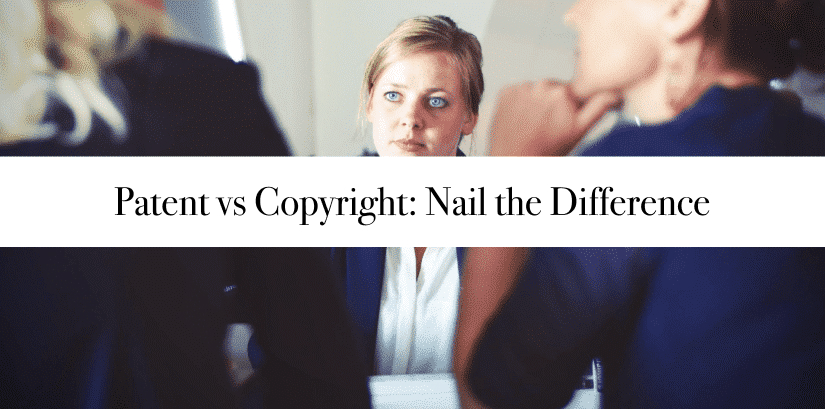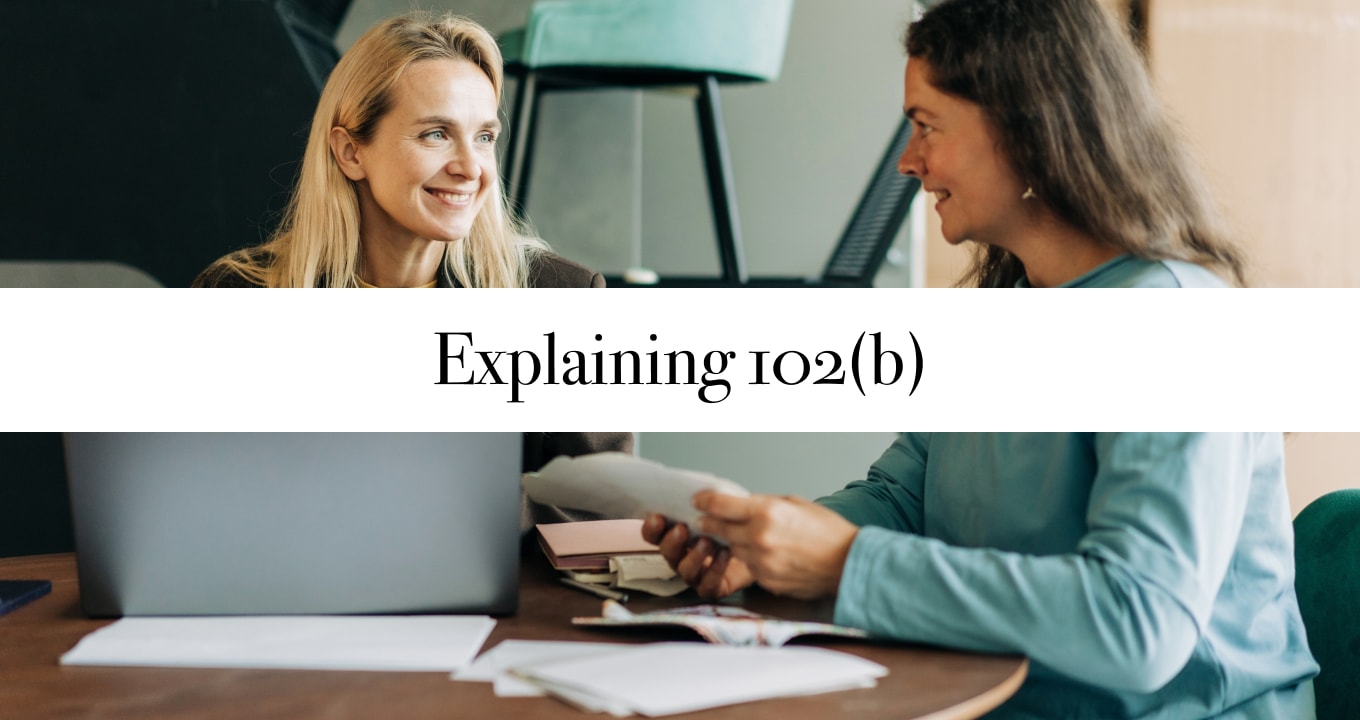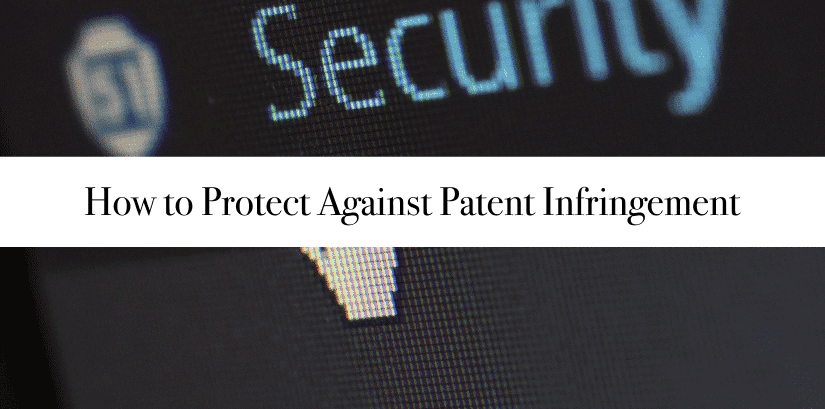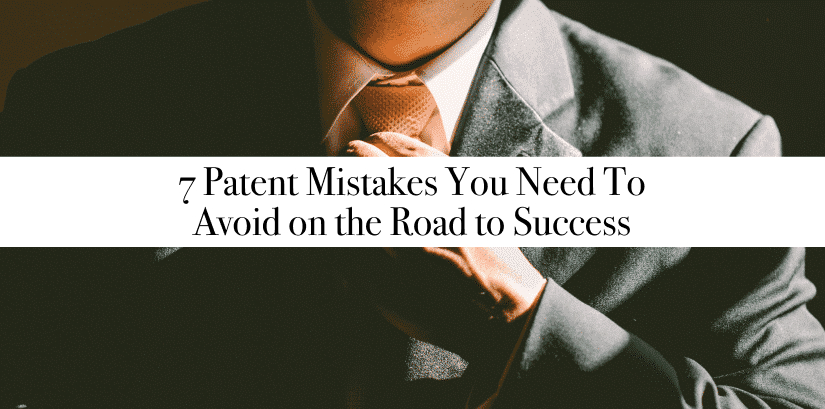Originally posted on June 15, 2017 @ 5:00 am
In 2012, a study shows that three court cases ended with settlements topping $1 billion.
Your new invention, or brilliant idea could one day cost you that much if you don’t prepare yourself. Even if all that cash should have been rightfully yours.
Unfortunately the legal landscape is not always as friendly to entrepreneurs as it should be.
The one thing that you don’t want to do is to get stuck between lawsuits. It could kill your company, but it’s guaranteed to be massive distraction from what matters most to us all, innovation and making customers happy.
There are 2 major things that can protect your work, but there’s pros and cons of using them both. A classic question in tech circles that often comes up is, patent vs copyright?
If you confuse one, somebody might be able to take your idea and sue you for using it. It’s vital to know the differences between these.
Understanding Patents
A patent is a license that gives your invention protection by making it exclusive to you. When your innovation is patented, it means that nobody is legally allowed to use, make it, or sell it. That patent applies to all companies regardless of how big they are which gives smaller companies a major advantage.
Having your innovation patented gives you exclusive rights to it, and that means that you are the only person in the world that can use that particular invention, but it also allows you to negotiate with other companies.
If a company is using your patent without your consent, you have a right to get compensated and to charge for further use of it. You also have an ability to negotiate with other companies and exchange the rights to use patents for mutual benefit.
This is great when you have a patent, but it also means that if somebody already patented your idea, then that you will more than likely not be able to use it until you come to an agreement with the patent holder.
And that’s why it’s crucial to patent your invention as soon as possible, especially as a startup. Not only because of that though, this process requires a lot of waiting. Now it’s key to remember that there are many types of patents out there, and intellectual property rights are a big topic!
You also only have 12 months from the time you first sold your invention to patent it. It takes around 2 years or more to get a patent. This is due to the complexity of certain patents and a number of patents filed compared to the number of people examining them.
There are several different types of patents, but utility and design patents are the most common. Utility patents protect new inventions while design patents protect a new design of a functional item.
A standard utility patent tends to last 20 years in the United States, but this varies across different countries. Each patent filed only applies to the country it was filed in which means that it’s only protected in that country.
Understanding Copyrights
This is something that we see everywhere but yet often confuse. Pretty much everyone puts it on their work, and they legally can as that’s how copyright works. Whatever you create, it automatically becomes copyrighted.
If your work is copyrighted, it means that people don’t have the legal right to copy, distribute, or modify your work without your permission. If you wrote a book, that book isn’t legally allowed to be modified without your permission. You are however legally allowed to take concepts from that work as they are not protected.
That does not mean that the ideas within your work cannot be used in other work either. For example, if an individual decides to use your story but he or she implements it in a different way, it might not be breaking any copyrights.
Your work is copyrighted from the second it is created. You can register your work to mark it as copyrighted which has its benefits as it gives you proof that your work was created when you said it was if there ever is a need to show that. That process does take up to 10 months.
The problem with copyright is that there’s a lot of ways to get past it. For instance, you can use copyrighted work under the “fair use” license. Copyright is also limited as you can use copyrighted work under “fair use.”
Work can be copyrighted for 70 years plus the life of the creator.
A person that holds the copyright has an ability to place a license on their work which may allow an individual to use the copyrighted work as long as they stick to the rules.
Patent vs Copyright
So, patent vs copyright, which one do you need?
A patent protects your inventions from being used by other companies or individuals in their works while copyright protects you or a creator of any content of any form whether it is writing or music from the illegal distribution, copying, or modifying of that work. Ergo, that groundbreaking app you’re working need copyrights for it’s contents and/or logo, the logistical tech behind it needs a patent.
Patents vs copyrights and duplication? Both of them protect your work from being copied. But a patent protects your invention from being copied. Copyright doesn’t protect inventions. It only protects your work.
That means that while your book that describes inventions cannot be copied, distributed, or modified without your permission, the ideas within it can be used freely for any purposes unless patented.
And when it comes to patent vs copyright, that’s the biggest difference.
Breaking patents is more serious than copyrights based on the fact that breaking copyright can result in a fine of $200 all the way to $150,000 while a breaking of patents can result in fines costing billions. Patent vs copyright? It’s simple to copyright your work but it’s also not as well protected as patents are.
It’s also a lot easier to bypass copyrights for example by using “fair use.”
While a copyright can last for 70 years or more, a utility patent generally lasts 20 years meanwhile a design patent lasts for 14 years.
So which one works best for you? Patent or a copyright?
Copyrights are great for creative creators such as writers or graphic designers, but copyrights won’t ever protect your inventions.
Conclusion
Patent vs copyright? You now learned about the differences. You also learned that patents are important and that you have to wait a long time. Therefore, you should make sure that it’s done right. Get in touch!
TL;DR: If you are an artist, then you don’t need a patent for your work. If you are working on inventions that were never seen before, you without a doubt do. Otherwise, your idea might soon not be your idea, and you might find yourself filled with lawsuits.






